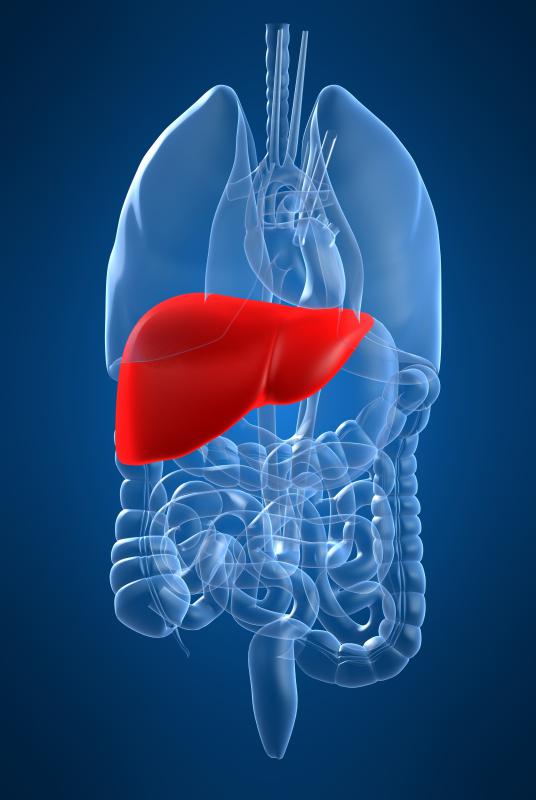At WiseGEEK, we're committed to delivering accurate, trustworthy information. Our expert-authored content is rigorously fact-checked and sourced from credible authorities. Discover how we uphold the highest standards in providing you with reliable knowledge.
What Is Stage 4 Liver Cancer?
Primary liver cancer — cancer that originates in the tissues of the liver and is not metastasized from elsewhere — is staged based on the size of the cancer and the extent of its spread. Stage 4 liver cancer, the final stage, is an advanced cancer that has spread beyond the liver and invades surrounding organs and tissues. Diagnostic testing is used to determine the stage and subsequent treatment options. Hepatocellular carcinoma is the most common type of primary liver cancer, forming in the liver cells rather than in the bile ducts or blood vessels of the liver. Treatment options may be limited at this advanced stage and include various chemotherapy and radiation therapies.
Stage 4 liver cancer is an advanced cancer and is diagnosed using a variety of tests. X-rays may be used to view the organs and bones to see if the cancer has spread to other areas. Other tests include magnetic resonance imaging (MRI), bone scans and a computerized axial tomography (CAT) scan. Stage 4 liver cancer can have tumors of any size and number in the liver. The definitive characteristic is that the cancer has spread from the liver to other areas of the body including the bones, circulatory system or lymph nodes.

Frequently, no symptoms are present until liver cancer has progressed to later stages. The liver is a complex organ with hundreds of metabolic functions including removal of wastes and toxins, and it plays a vital role in digestion. Symptoms of stage 4 liver cancer are frequently related to the disruption or complete loss of these processes. Common symptoms include declining appetite and weight loss, yellowing of the skin and abdominal pain. Nausea and vomiting, extreme fatigue and fever are other symptoms that might be present in stage 4 liver cancer.

The prognosis for stage 4 liver cancer is generally poor, and treatment options may be limited. Liver cancer is frequently not diagnosed until the later stages, making this one of the most deadly forms of cancer. Treatment is individualized based on the extent the cancer has metastasized, the overall health of the patient and other factors. There is no known cure for stage 4 liver cancer, and five year survival rates are extremely low. Treatment options include chemotherapy, radiation therapies and possible liver transplantation.

Liver metastases differ from primary liver cancer because the metastatic tumors have spread to the liver from another organ in the body rather than originating in the liver. Cancers that spread to the liver include breast, colorectal and esophageal cancers. Secondary or metastatic liver cancer is more common than primary liver cancer. Treatment of liver metastases depends on the organ of origin, the number and size of the tumors and whether the cancer has spread to other organs and tissues. Surgery, chemotherapy and other therapies are used to remove or shrink tumors and improve life expectancy.
AS FEATURED ON:
AS FEATURED ON:

















Discuss this Article
Post your comments